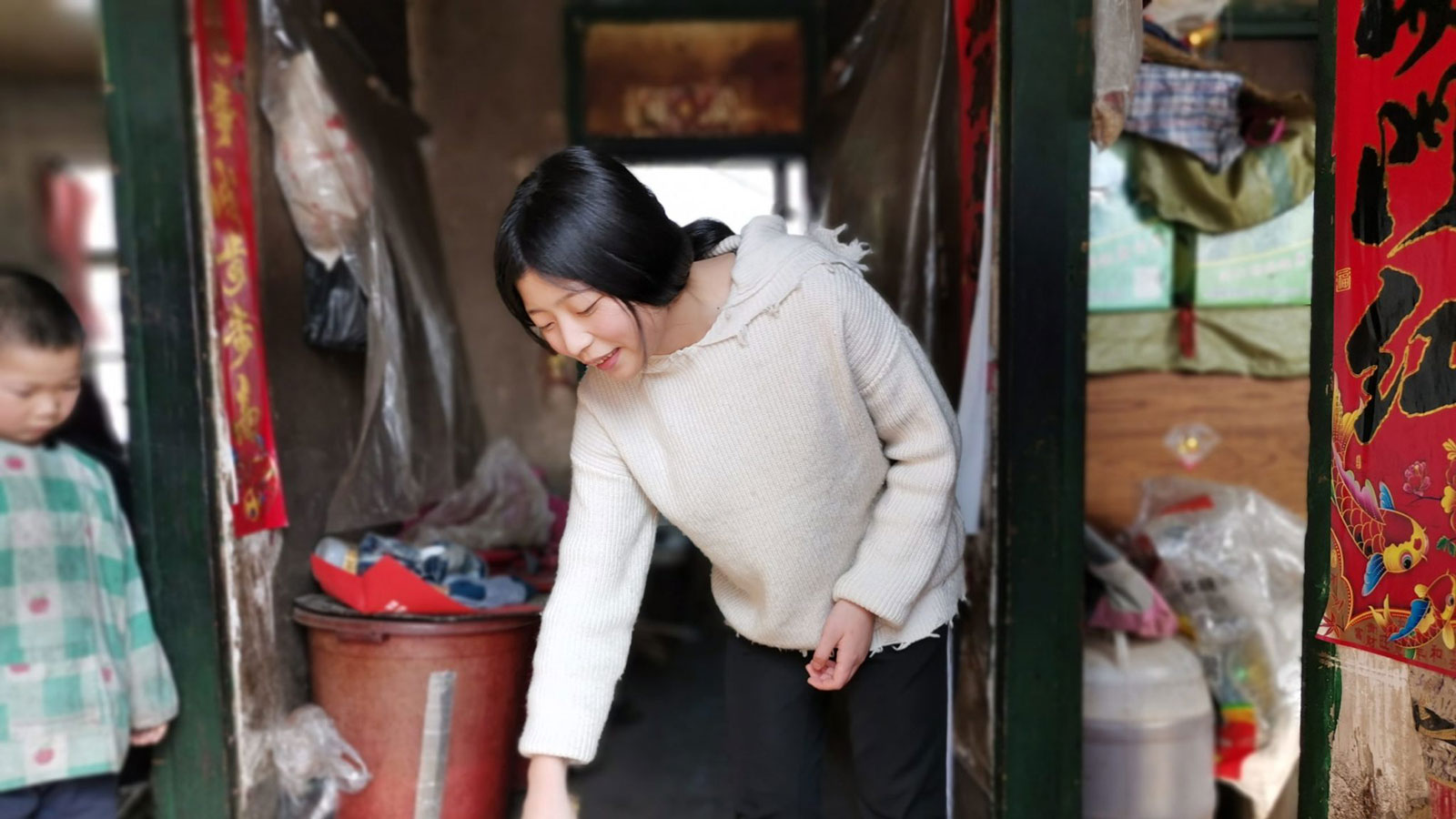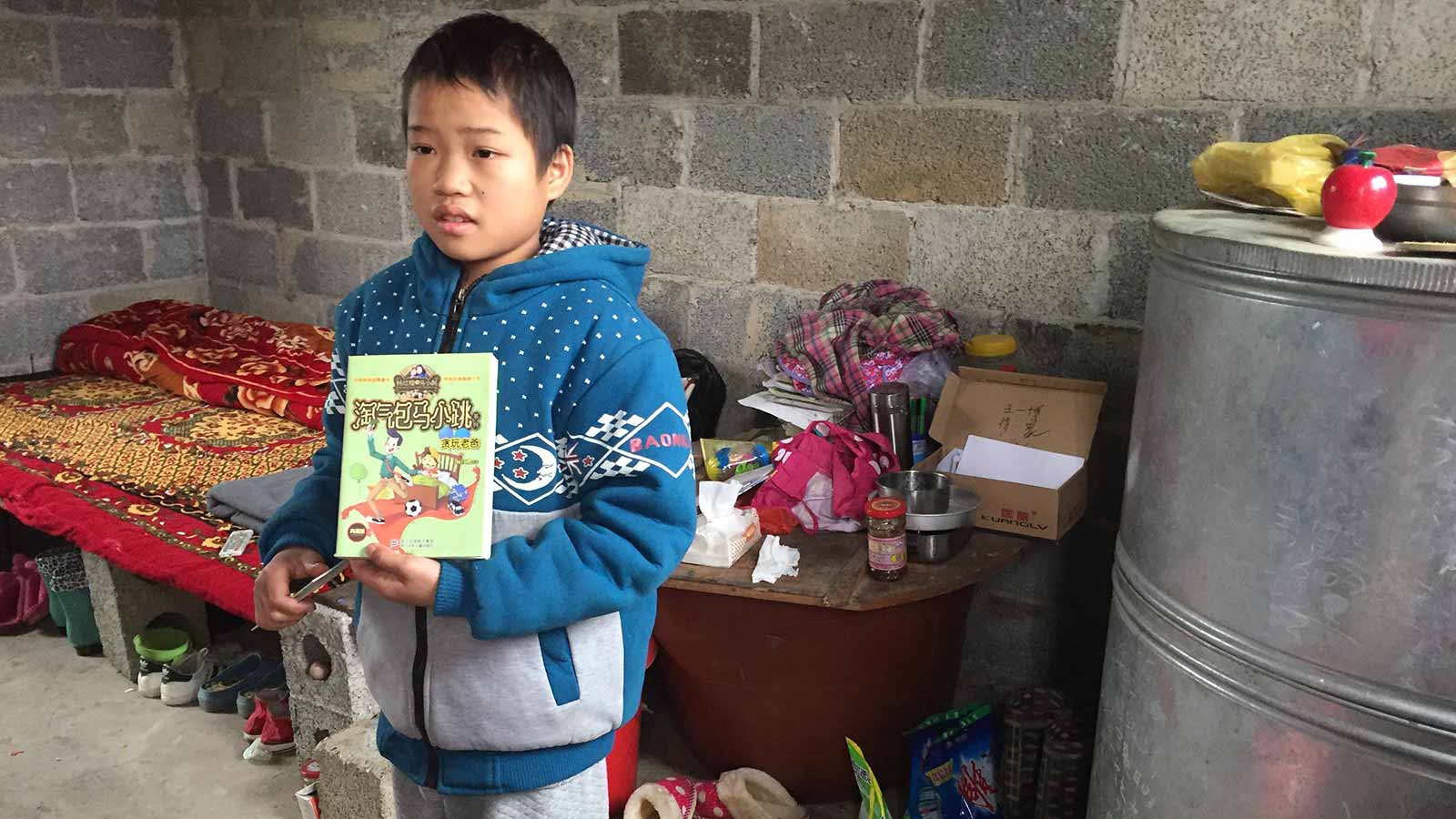When a news story broke in China about children who died by suicide after their parents migrated without them, it became clear this was more than a crisis of poverty. It was a crisis of loneliness and loss.
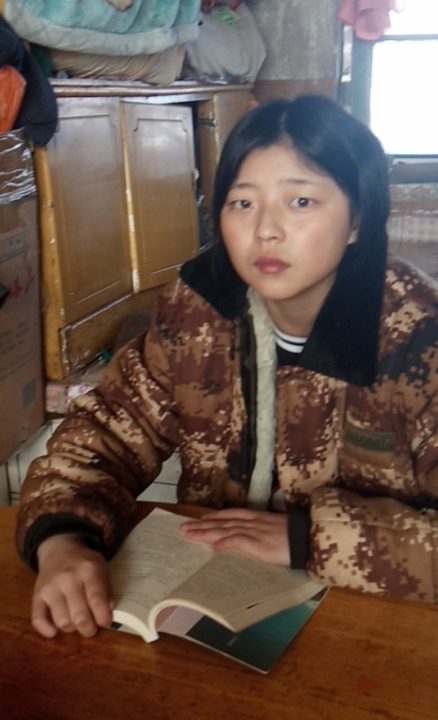
Luan doesn’t blame her parents for leaving. She loves them and forgives them for doing what they did. She even goes to visit her mom sometimes.
“I don’t know why she left me,” she says of her mom, “but I don’t blame her or hate her.”
Luan is among an estimated 6.4 million children in China who are growing up without their parents — left behind in rural villages in the care of elderly grandparents or relatives who struggle to provide for them on their own meager resources. In some cases, parents leave their children when they divorce, or when they remarry and their new spouse won’t accept children from a previous marriage. But most parents leave when they migrate to cities in search of work. They leave out of poverty, out of desperation.
Although some parents try to bring their children, often, the costs to live in the city are too great.
“It is difficult because childcare, everything in the city, it is very difficult for them to bring the children. Many of them try their best, but still, many couldn’t do it,” explains Jian Chen, Holt’s vice president of China programs. “There are so many children still left behind unfortunately, and they grow up by themselves.”
“It is difficult because childcare, everything in the city, it is very difficult for them to bring the children. Many of them try their best, but still, many couldn’t do it. There are so many children still left behind unfortunately, and they grow up by themselves.”
Jian Chen, Holt VP of China Programs
Most children don’t grow up completely alone. But even if they stay behind with grandparents, for many children — especially girls — being left behind also often means being left in charge. Not only do they not receive the care they need, they end up being caregivers for their younger siblings and elderly grandparents. They cook, they clean, they watch after their siblings. They do everything that a parent would do.
“If they’re girls and they take care of the whole family, you hardly see any smiles on their faces,” says Jian, telling a story about one 8-year-old girl who never smiled when she came to visit her. For two years, not once did Jian see anything but a stony expression on this young girl’s face. Then, one day, Holt sponsors and donors partnered with Holt staff and the local community to put on a camp for these children.
“Finally, for the first time,” Jian says, “I saw her smile.”
Creating a Network of Support
Six years ago, Holt began a program in China’s Jilin province, where Luan lives, to help children like her and her brother. The crisis of “left behind children” had recently gained national attention after a news story broke about children who died by suicide by drinking pesticide after their parents left and never came back. Immediately, the government launched a national campaign to provide support for children growing up without parents.
They also invited the help of trusted partners like Holt.
But while Holt couldn’t offer much in terms of material support, what these children needed more than anything was the kind of emotional counseling and guidance that our social work team is expert in providing. As Jian explains, children drank pesticide not because they were poor — but because they didn’t have the love and support of their parents. Because they were lonely.
“That kind of loneliness is much, much worse than the poverty itself. You don’t have a sense of future, you don’t have many friends, you don’t have resources or motivation … Before China paid attention to these children, children were lonely to death.”
Jian Chen
To learn more about these children, our team in China began going out into rural communities and meeting with them one on one. They learned about their lives, asked them questions, got to know them. And they began training and building up a local network of support for them — of teachers and villagers, of “aunts and uncles,” who would look out for them.
In China, the government approach to poverty often involves one-time mass donations of material goods.
“But they also know that children need not just one-time, two-time, you donate the rice and oil,” Jian says. “Psychologically, they need support — uncles and aunts to help these children … It has to be long-term, has to mobilize all the villagers, caregivers, childcare workers, teachers, whoever to really work with children together.”
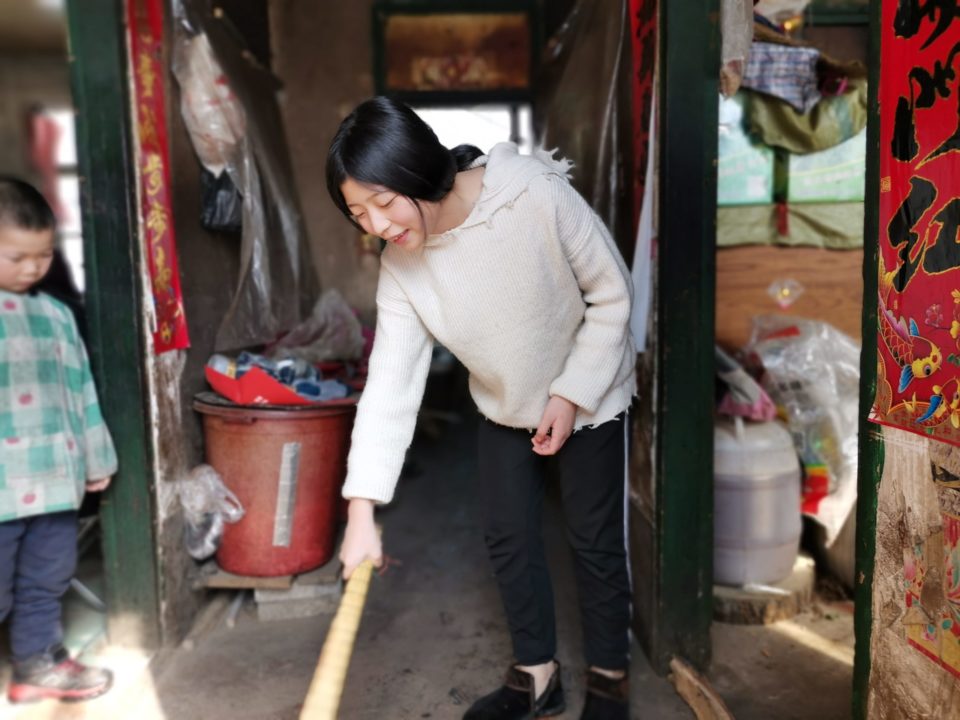
Although every village in China has a women’s association leader or child welfare worker tasked with looking after children in the community, they rarely have education in social work. “So we used our own strengths to train the child welfare workers in the village,” Jian says.
With backing from the government, our social work team taught child welfare workers how to identify children in need, how to conduct a home visit, and how to determine what kind of support children needed. They learned to look at whether the children’s grandparents knew how to appropriately care for them, whether the children had relatives who could step and help, and whether the family had sufficient income to care for the children. The also looked at whether the children were enrolled in school and who around the children could provide additional support when they needed it.
After assessing the needs of the children, the child welfare workers began building a network of support for them. When they needed advice for how to help a particular child, the workers would connect with Holt social workers over WeChat.
“They might say, ‘Hey, I have a child with special needs. Do you know how we can help?’ And our social worker will say, ‘How about this… You need to contact the ministry or education department,’ things like that,” Jian explains.
In this way, Holt — and Holt sponsors and donors who provide the vital resources for these kind of social work services — could help many more children than just our small team could help individually.
“Otherwise, we could never work with the thousands of children because it’s just too much work,” Jian says.
But while meeting families and training social workers in Jilin province, Holt’s social worker team in China also identified those children whose needs went above and beyond. Children whose parents gave them no support whatsoever, whose grandparents had almost nothing to provide for them. Children at greatest risk.
For these children — children like Luan — Holt’s China team called upon the generosity of Holt sponsors.
Not Alone in the World
Luan’s mom left first, when Luan was young. After her parents divorced, her father remarried. But her step-mom soon left as well because of the family’s poverty — leaving behind her son, Luan’s little brother. After that, Luan’s dad left to find work in the city. Without skills or education, he has only been able to find irregular work doing low-paying jobs. He wants to give his kids a better life, but right now, he can’t afford to send any money back home to care for Luan and her brother.
As their parents left, one by one, Luan and her brother stayed behind in the care of their grandparents. They live in a small rural village home to only ten other families. Their house is not well maintained and doesn’t have running water or a drainage system. They walk long distances to fetch water and collect firewood to cook and heat their home in winter. They live on just $68 per month for the four of them.
As the oldest child, and now 18 years old, Luan has a lot of responsibility. Her grandfather is nearly blind. Her grandmother has cognitive delays. And her brother is only 6.
But although their lives are hard, they have a lot of love in their family.
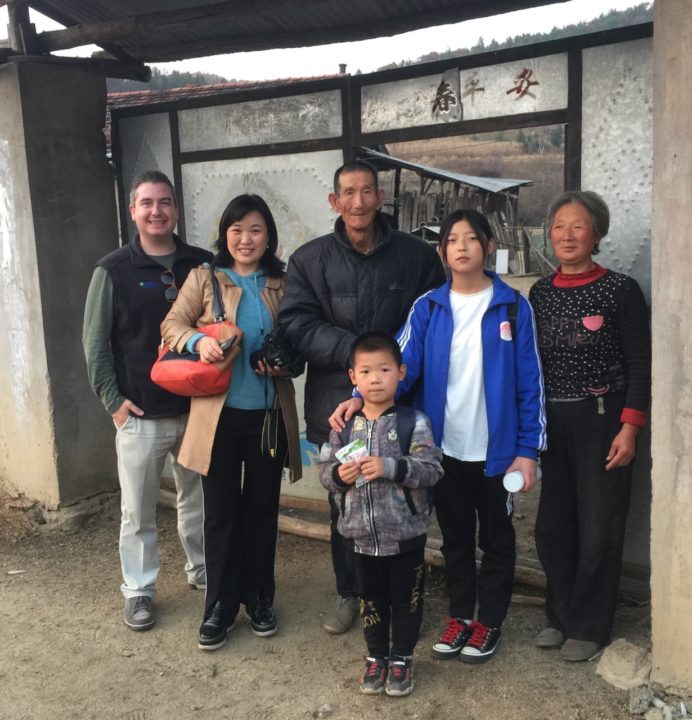
“[Luan] loves her grandparents and younger brother so much,” Luan’s social worker says.
But Luan lives under a heavy burden. She even told her parents not to worry and that she could take care of her grandparents and her brother.
When Holt’s China team learned about Luan, however, they immediately enrolled her family in Holt’s child sponsorship program. Soon afterward, a sponsor stepped up to help meet her needs.
“[When] the parents work outside and hardly come back, and the grandparents can’t support the children, we step in and put them into our sponsorship program.”
With the support of sponsors, Luan and her brother began receiving regular support every month. They now attend nearby boarding schools, and their sponsors help cover the cost of school supplies, books, uniforms and fees as well as all of their meals at school.
Through the social work training provided by Holt’s China team, Luan and her brother also have a whole network of people looking out for them now.
“The director of the village, the director of children’s welfare work and their Holt social worker support them both in life and in emotion,” Luan’s social worker says. They talk with Luan via WeChat and regularly connect with Luan and her brother’s teachers to see how they’re doing.
With Luan away at school, the children’s welfare director also checks in on her grandparents and helps with anything they’re struggling with. Knowing her grandparents are being looked after, Luan can focus better on her studies — and focus on her future.
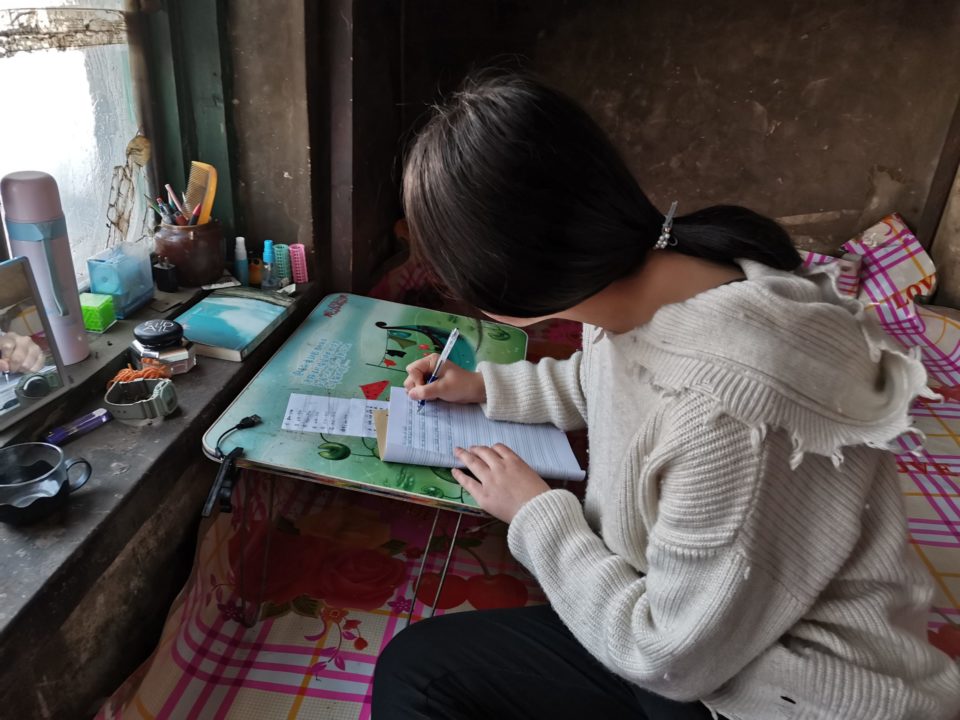
And finally, Luan feels hopeful about her future. She loves drawing, reading biographies and ancient Chinese poems, and even won second place in a school poetry competition. She also loves children, and one day, she hopes to become a kindergarten teacher. Luan’s social worker says she is positive and optimistic.
Most of all, she feels like people care about her — both in her community, and around the world.
Before Holt’s China team began working with the local government to help children growing up without parents, families like Luan’s were often treated as pariahs in their communities.
“Because of their poverty, villagers are mean,” explains Jian. “They think you are going to ask for a hand-out. If you are poor, you don’t get sympathy from the village. You have leprosy.”
“Because of their poverty, villagers are mean. They think you are going to ask for a hand-out. If you are poor, you don’t get sympathy from the village. You have leprosy.”
Jian Chen
For the children, class distinctions are felt most at school.
“Comparison is the worst,” Jian says. “When school asks you to pay for a uniform, some kids cannot pay … And breakfast, a lot of kids don’t have money to go get breakfast.”
But more than just being poor, many children struggle with low self-esteem “because other children have parents, and they don’t.”
Through trainings with Holt’s China team, teachers have learned to pay extra attention to the children growing up without parents. Child welfare workers even check in on them during annual New Year celebrations when children are out of school for several weeks.
“They will say, I wonder if so-and-so has dumplings, good food,” Jian says. “They go check in and bring something or ask the government for emergency support.”
But it’s not just about having good food to eat. It’s about making sure that children don’t feel alone and forgotten on this special holiday in China.
And sponsors help to remind children left behind that they are not alone in the world.
Last December, Luan received a card from her sponsor. “She was very happy and grateful that this stranger supported her and her family from the other side of the world,” her social worker says.
Last December, Luan received a card from her sponsor. “She was very happy and grateful that this stranger supported her and her family from the other side of the world,” her social worker says.
Luan may not have her parents in her life, but she has her grandparents and her brother, her teachers and child welfare workers, her Holt social worker — and from the other side of the world, her sponsor.
As her social worker says, “Now she feels full of hope for her future and feels there are so many good people and beautiful things in her life.”
At present, over 4,000 children growing up without parents are enrolled in Holt’s sponsorship program in China. But through our networking model, every year Holt sponsors and donors help thousands more children “left behind” in China.
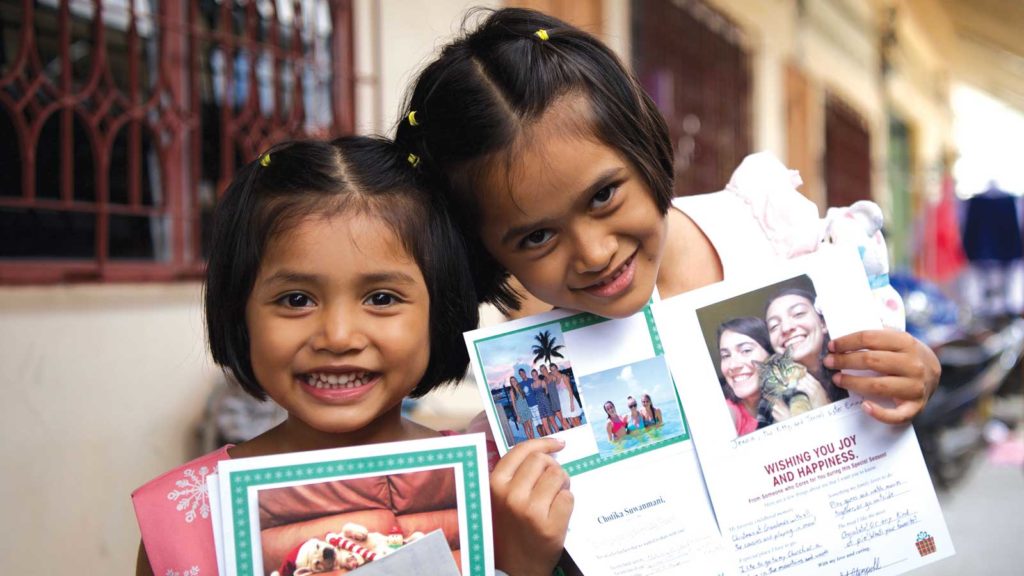
Become a Child Sponsor
Connect with a child. Provide for their needs. Share your heart for $43 per month.
